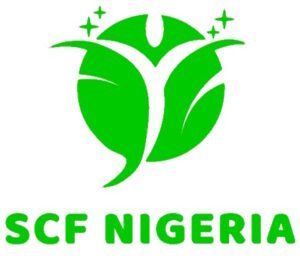Ososo Kingdom

On August 29, 2024, HRM. Oba (King) Bamidele Obaitan, Okuodu III, Oyan’Ososo of Ososo Kingdom, entered into a comprehensive economic development agreement with US based NGO Sustainable Communities Foundation (SCFndn) and its Nigerian NGO counterpart, Michael Sauvante Care Foundation (MSCF), to implement the Sustainable Communities Framework (SCF) in Ososo Kingdom. That includes nearly every item that is listed on the page titled “What Can Be Done With SCF”.
Basic Food Grants
The program is commencing with a number of grant programs beginning with a Basic Food Grant to EVERY adult and child in the kingdom. We will give each of them sufficient food vouchers to purchase two full meals a day. In Ososo, each voucher will be called a Ruku. Anyone can survive on an open ended basis with two full meals a day. Word got out quickly about the program and residents of Ososo lined up at registration sites throughout the kingdom.
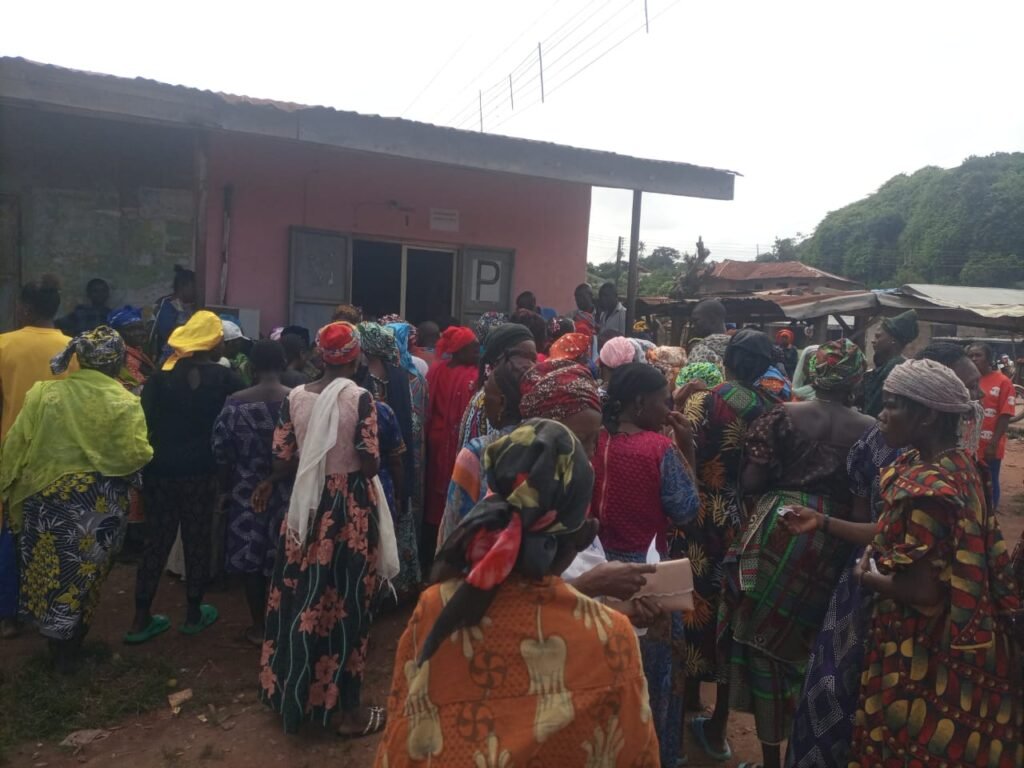
Local merchants also quickly signed up to accept Rukus, and are already displaying signs in their stores that they accept Rukus for purchase of their goods.





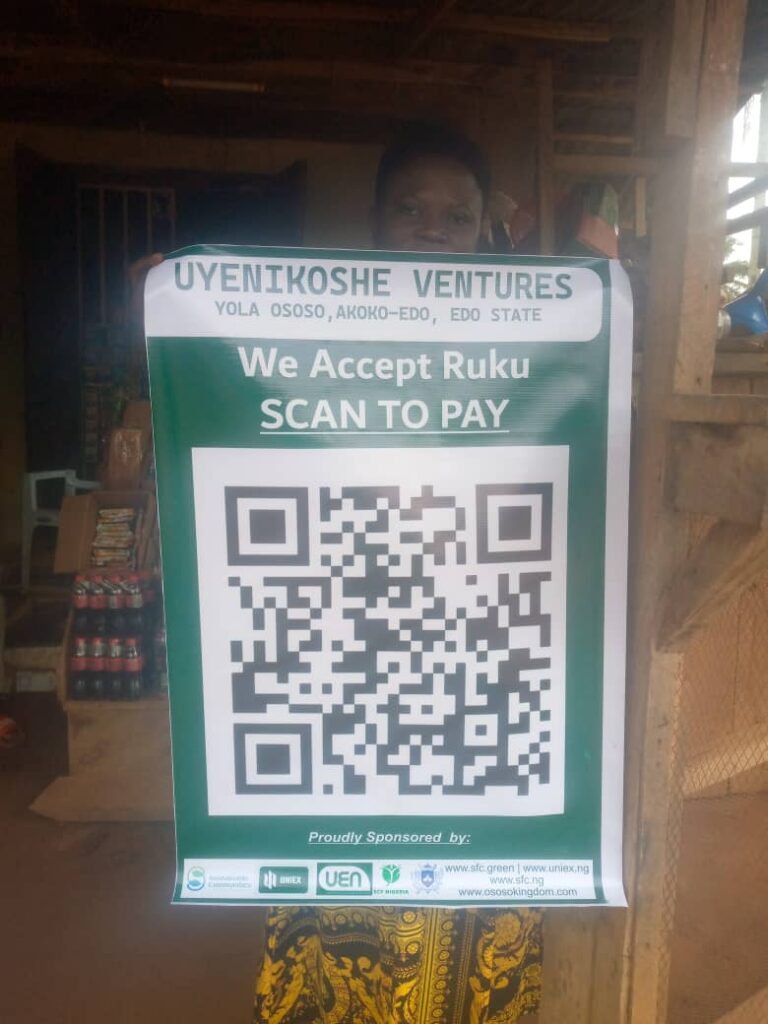
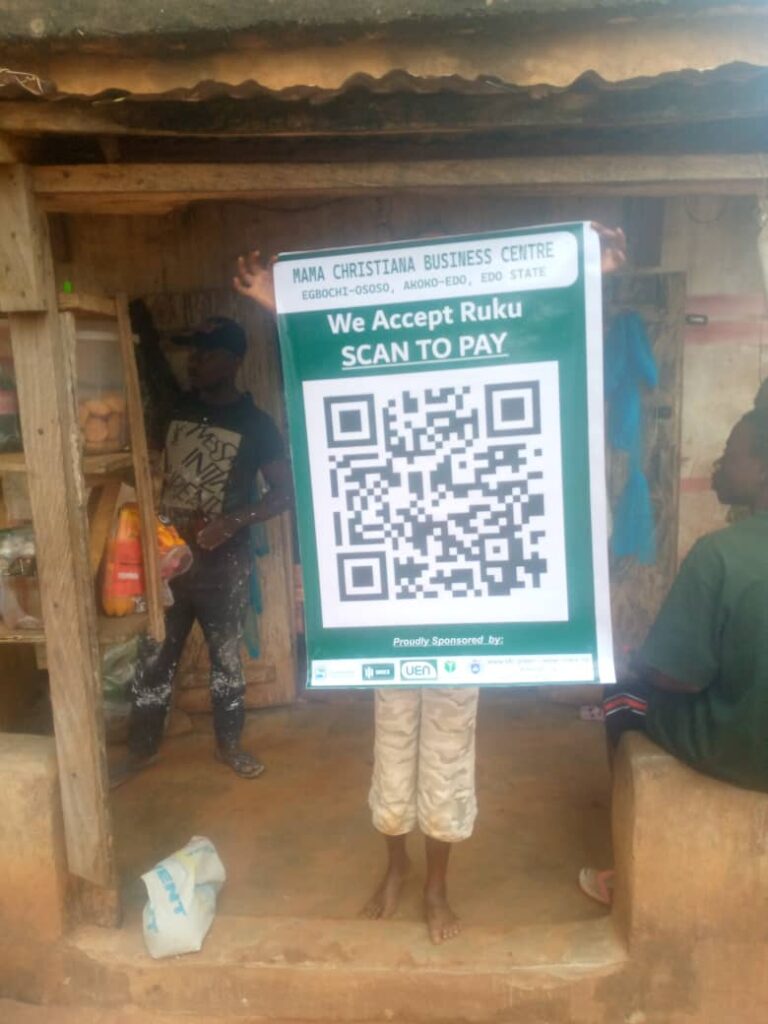





Significance of the Program
With a population of about 100,000 citizens, this Ososo Kingdom food grant will be one of the largest in history, let alone what is to follow as we expand throughout the rest of the state of Edo, whose population is around 5 million residents, and the rest of Nigeria with its approximate 230 million population (6th in the world).
What is even more significant is the fact that the program is not dependent on any ongoing source of funds from the government or foundations/donors to keep it going. SCFndn’s program has no limit on the voucher grants it can issue, guaranteeing that the program will continue as long as it is needed. This means we can permanently eliminate food insecurity from Ososo and beyond. That directly addresses the 2nd goal of the Sustainable Development Goals (SDG) of the UN – “Zero Hunger”, one of its 17 SDG goals, as defined on the UN website.
Ripple Effects
No other program in history has the realistic prospect of truly eliminating hunger like this one. Yet it does more than just eliminate hunger. If a person has enough food to properly address their nutritional needs daily, and assuming they have water and shelter and don’t get injured or sick, they essentially have their basic core needs taken care of to survive indefinitely, without the need for any more money. That means extreme poverty is also eliminated, which is the 1st SDG goal, “End poverty in all its forms everywhere”. So, in just one program we provide an unprecedented ability to address two of the UN’s SDGs.
However, as we point out on the Basic Food Grants page, there is another highly predictable ripple effect of these grants. The creation of many new small businesses! And like startups everywhere, most of those entrepreneurs are going to need a certain amount of starter capital to launch their businesses. That naturally evolves into another of our grant programs, startup and expansion grants, as described here. Yet all this is just the tip of the iceberg in terms of the economic programs baked into the SCF program that is being deployed in Ososo.




Additional Programs In Ososo
Once the basic food grant program is well underway, we will turn our attention to other elements of the SCF program in Ososo. One of the key drivers of implementing other programs concerns funding. If a new program can be funded strictly with vouchers issued by SCFndn, then the only thing standing in the way of implementation is simply developing an implementation plan and assembling a team that can execute on that plan. If the new program also needs a certain amount of the national currency (Naira) or dollars, then arrangements need to be made to obtain those funds from a variety of means, in most cases delaying implementation.
One of the first programs that can be funded with just vouchers would be the support of public servants in the kingdom. We will begin to provide the Kingdom with full employment grants to cover the costs of ALL civil servants who work for the King and Kingdom. That would include all teachers in Ososo along with police officers, sanitation workers, street cleaners, clerical workers, care givers (child, health, elder and infirm), all vital contributors to the health, well being and future of any community, but traditionally some of the most under appreciated and therefore under compensated. Health care workers would be included as well so that, to the extent possible, all citizens of Ososo can receive free basic health care, including the staffing of emergency clinics and the like.
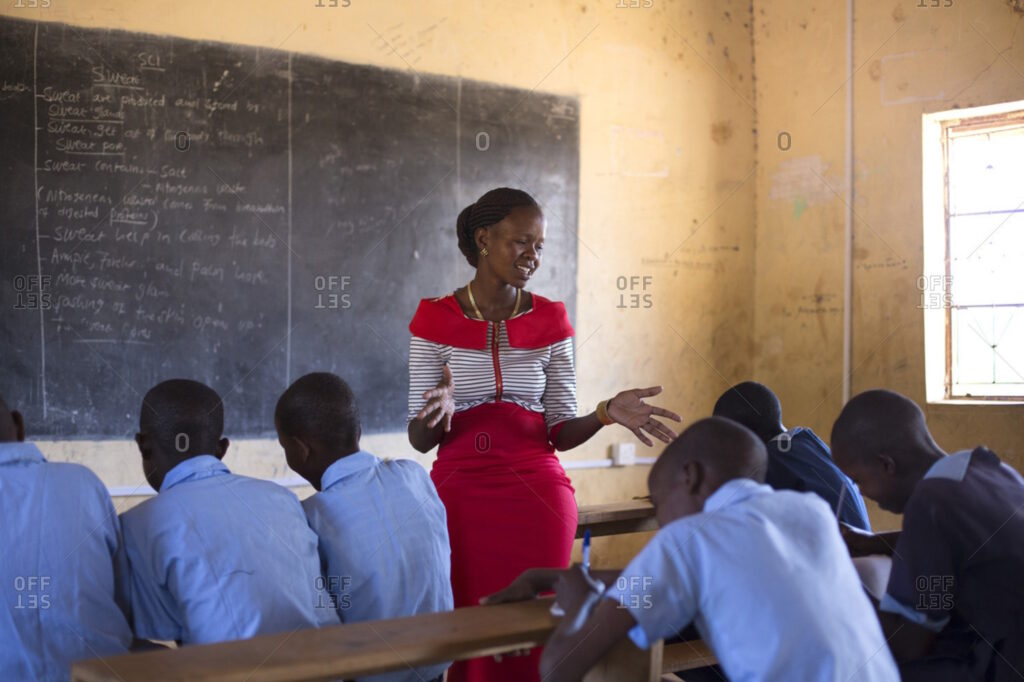

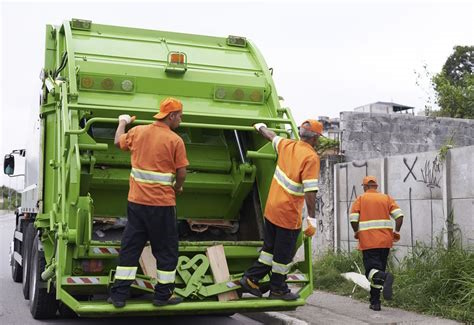




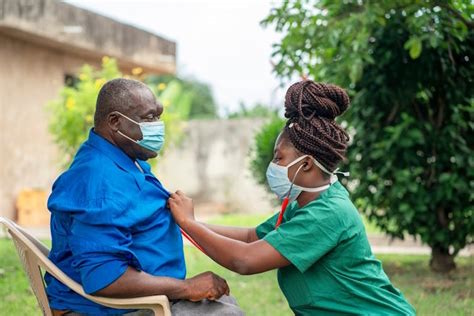
Quality of Life Issues
Prosperity is not just economic but includes the things that make life worth living and enjoyable. From a physical standpoint, that means ensuring that citizens have shared outdoor environments that they can visit and enjoy. That includes parks and facilities like entertainment venues for weddings, festivals, concerts, plays, etc. Most, if not all of the costs associated with these quality-of-life elements can be covered by Ruku grants.




Tourism
One of the ways to grow the local economy is to encourage tourism. Tourism represents one of the best ways to bring in outside money that hopefully remains in Ososo. Around the world, one of the best ways that goal is accomplished is with “buy local” campaigns. Essentially, they are campaigns that encourage both local citizens and visitors to purchase goods and services from locally owned establishments. That produces what is called the “multiplier effect.” Typically, 48% of each purchase at local independent businesses recirculates locally, compared with less than 14% of purchases at remotely owned stores. Remotely owned stores would commonly be retailers like McDonalds or Burger King and similar chains.
What that means is that communities should resist, as much as possible, allowing such chains to establish operations in places like Ososo. They would likely drain tourists’ dollars and Naira back out of Ososo. One of the best ways to encourage tourists to buy local is to get them to convert their national currency into Rukus. Chains are less likely to accept Rukus than locally owned businesses. Additionally, local merchants can sell Rukus in their establishments and earn a 30% commission (in Nairas) plus a matching amount of Rukus (effective commission equal to 60% of the sale), in addition to the profit they will make in selling their goods and services.
Note – Each time such a sale is made, that money is injected permanently into the local economy. That is, not only is the outside currency injected into the local economy, but a matching amount of Rukus is added as well. The health of all economies throughout the world are driven by two factors – the amount of money in circulation and the speed with which it changes hands (called the velocity of money).
To facilitate the purchase of Rukus by tourists and others, we have developed a program that closely resembles pre-paid credit cards in the United States and elsewhere. We have established a separate category for “temporary” Ruku account holders who can purchase an account in any participating merchant’s facility, or at an Ososo “visitor’s center,” etc. Tourists would be encouraged to purchase them based on the premise that they would be helping to build Ososo and would likely receive a discount from merchants who accept Rukus.

And like a pre-paid credit card, a tourist would receive a card, only instead of a MasterCard or VISA, it would be a laminated card on which we would print a QR Code that represents a pre-defined Ruku account. The tourist would use their own credit card or ATM card to purchase the Rukus, which get added to that account, accessible using that QR Code. Thereafter, they may use those QR Coded cards to purchase goods and services from local parties.
If they run out of Rukus, they can visit any participating shop and purchase more (just like pre-paid credit cards can have more money added). And each time such a sale of Rukus occurs, whether the first time a card is purchased, or more Rukus are added to an existing one, the merchant will earn a 30/30 commission.
What is also significant the kingdom, as a State Partner in Ososo, it will directly receive a 30/30 commission override on the sale made by the merchant. If the kingdom sets up a visitor center that is owned and manned by the kingdom, then any sale made to tourists will yield a 60/60 commission, i.e., 60% of the national currency received from the sale of the Ruku, plus a matching amount of Rukus. That is net income for the kingdom to use for other purposes in the kingdom as it chooses.
Workforce and Entrepreneurship Development
Along with the startup and expansion grants described above, there is another program that can be funded nearly exclusively with Rukus – workforce and entrepreneurship development. That means training and guiding entrepreneurs and their teams to build businesses. This would apply to those who want to build a business that is more than a one person shop, those with the potential to grow, add employees, etc. And like those micro enterprises, we can fund them to start and initially grow with Ruku grants.
Other Programs
Although we are starting with a food grant program, voucher recipients will also use those vouchers to purchase all manner of goods and services in Ososo, as the local voucher (called Ruku in the State of Edo) becomes viewed as functionally equivalent to the Naira, the Nigerian national currency. The more that occurs, the more all local business will begin to accept Rukus for partial or full payment for their goods and services.
That then opens up other grant programs such as infrastructure programs – build and repair roads and bridges, flood control systems, sewer systems, irrigation systems, low cost housing and housing rehabilitation, blight remediation and more.








Other Programs That Require Some Outside Funding
Finally, here are some programs that will require some level of outside funding to augment what can be covered by the Rukus. For one, internet access is spotty throughout the kingdom primarily because most access to it is via the cellular network. And the cell network is the reason for the spotty internet access because the cell coverage throughout the kingdom is spotty. One way to address that is to acquire certain hardware that boosts cell signals (through amplification).
In some cases that might also require satellite systems that can be connected to the internet. Those systems will likely be composed of the satellite equipment powered by a solar array and back up batteries, coupled with WiFi equipment to broadcast that connectivity over a broader area such as possibly over a whole village. Such equipment would have to be purchased with a national currency, and there will likely be an ongoing monthly fee to be paid to the satellite provider, also paid for with a national currency.
The single biggest project that will require a significant amount of outside funding concerns plans to build solar electric facilities, both in the form of micro grids (small, localized systems to supply a limited number of homes, offices and other buildings and equipment) and a larger solar farm with battery backup.

Outside Funding
For all those items requiring outside funds, we shall be seeking both government and donor grants. For individual parties interested in supporting this effort, we encourage you to go to this page to arrange for donations. Thank you.
Interested parties can contact Michael Sauvante, Exec. Director, Sustainable Communities Corporation. sauvante@scf.green, 1 (330) 299-9692

